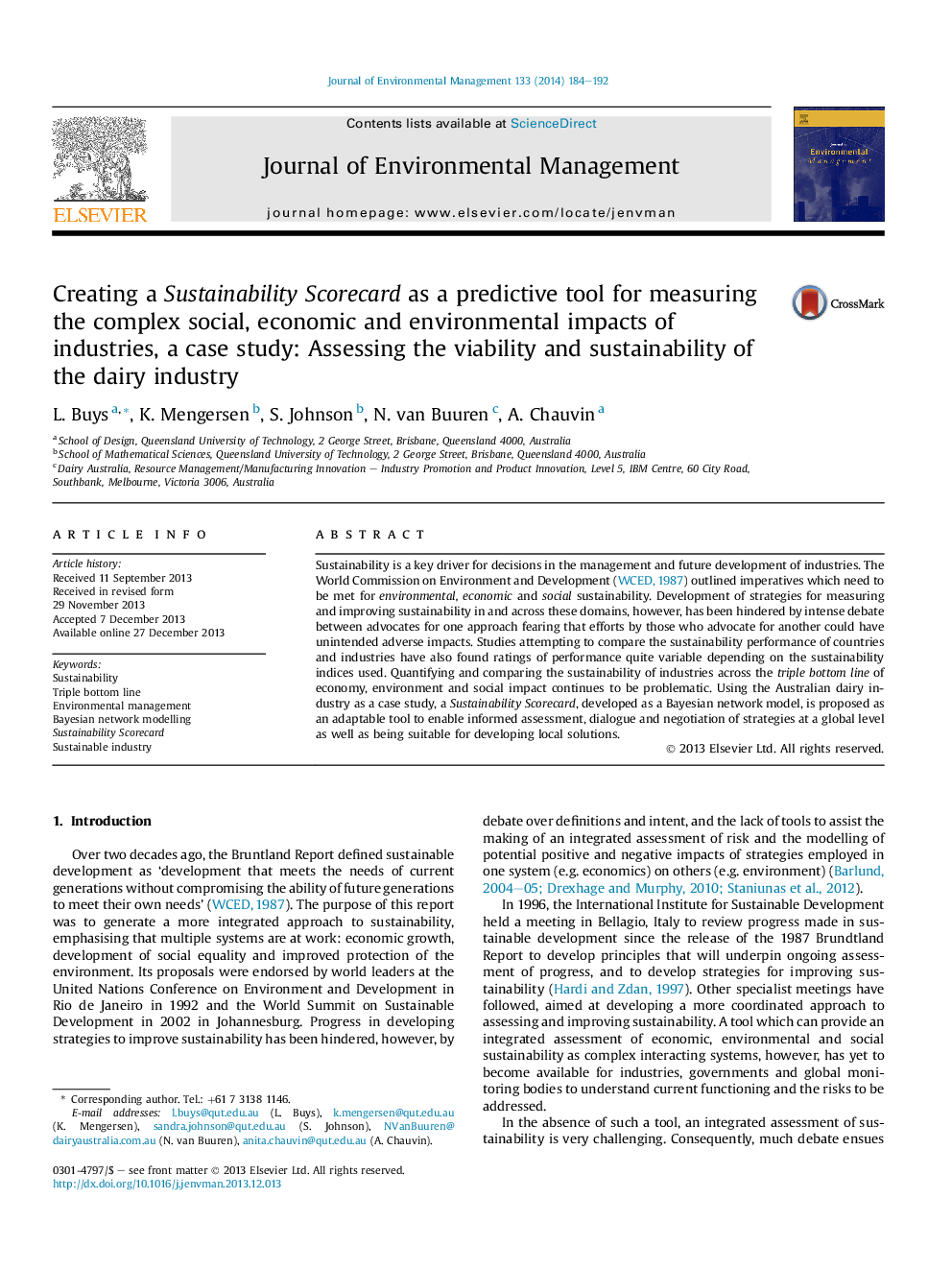| Article ID | Journal | Published Year | Pages | File Type |
|---|---|---|---|---|
| 1055838 | Journal of Environmental Management | 2014 | 9 Pages |
•Strategies are needed for measuring and improving the sustainability of industries.•Bayesian network modelling was used to develop an adaptable tool for this purpose.•The Sustainability Scorecard assesses environmental, economic and social domains.•It is suitable for the development of solutions to industry sustainability problems.•It also enables quantification and comparison of sustainability across industries.
Sustainability is a key driver for decisions in the management and future development of industries. The World Commission on Environment and Development (WCED, 1987) outlined imperatives which need to be met for environmental, economic and social sustainability. Development of strategies for measuring and improving sustainability in and across these domains, however, has been hindered by intense debate between advocates for one approach fearing that efforts by those who advocate for another could have unintended adverse impacts. Studies attempting to compare the sustainability performance of countries and industries have also found ratings of performance quite variable depending on the sustainability indices used. Quantifying and comparing the sustainability of industries across the triple bottom line of economy, environment and social impact continues to be problematic. Using the Australian dairy industry as a case study, a Sustainability Scorecard, developed as a Bayesian network model, is proposed as an adaptable tool to enable informed assessment, dialogue and negotiation of strategies at a global level as well as being suitable for developing local solutions.
Graphical abstractFigure optionsDownload full-size imageDownload as PowerPoint slide
